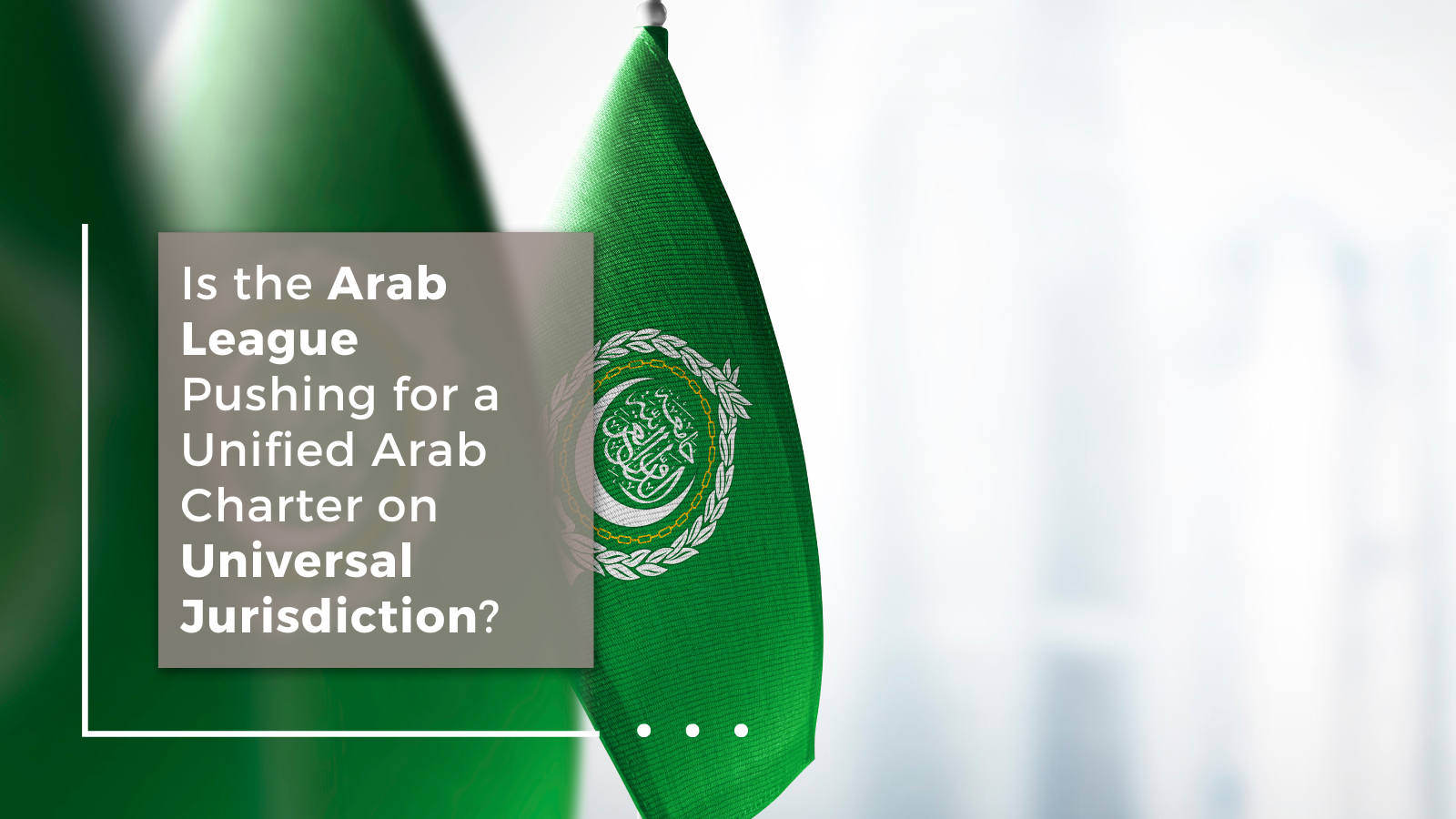
Is the Arab League Pushing for a Unified Arab Charter on Universal Jurisdiction?
At the end of July, the League of Arab States hosted a symposium in Cairo titled “Activating the Role of National Courts in Prosecuting Perpetrators of International Crimes as a Guarantee to Combat Impunity.” The event, held at the League’s headquarters, was organized by the Arab Center for Legal and Judicial Research—an entity affiliated with the Council of Arab Justice Ministers—in cooperation with the League’s General Secretariat. It brought together legal experts, representatives of civil society, and regional officials to discuss how Arab national courts can play a stronger role in combating impunity for international crimes.
The League of Arab States, commonly known as the Arab League, is a regional organization founded in 1945 to foster political, economic, and cultural cooperation among Arab countries. It currently comprises 22 member states from the Middle East and North Africa. While the organization has historically focused on diplomatic and political coordination, recent discussions suggest an increasing interest in legal tools to address issues of justice and accountability.
During the symposium, participants underlined the importance of the International Criminal Court (ICC) as a cornerstone of the global system of justice. The conversations included reflections on the ICC’s role in addressing alleged crimes committed against Palestinians and explored broader strategies for documenting violations, preparing legal case files, and pursuing accountability through both international and domestic legal avenues. There was also emphasis on enhancing the role of civil society, professional associations, and national legal institutions in this domain.
A significant contribution came from the Scientific Advisory Council of the Kuwait Lawyers Association, which presented a comprehensive proposal advocating for the development of a unified Arab charter to strengthen the principle of universal jurisdiction across the region. The Council argued that such a charter could provide a legal and political framework for Arab states to prosecute individuals accused of war crimes, crimes against humanity, and genocide, regardless of the location of the crime or the nationality of the perpetrator. Central to this vision is the integration of the principle of universal jurisdiction into national legal systems, thereby empowering domestic courts to act independently of territorial constraints, including in the absence of the accused.
The proposal included the creation of a specialized legal unit within the League of Arab States to document violations, provide legal expertise to member states, and coordinate collective legal efforts before international tribunals. The Council also suggested establishing a centralized regional database to record evidence and identify suspects, aimed at supporting transnational investigations and prosecutions. It stressed the importance of updating domestic legislation to bring it in line with international legal instruments such as the Geneva Conventions, the Genocide Convention, and the Rome Statute. The proposal also called for the creation of national judicial and prosecutorial bodies specifically mandated to address international crimes, and encouraged Arab countries to sign mutual legal cooperation agreements to facilitate the sharing of legal files and evidence.
Civil society was identified as a key actor in this effort. The Council advocated for coordinated legal and media campaigns to raise public awareness of universal jurisdiction. It also urged non-governmental organizations and professional unions to play an active role in the documentation of violations and in the preparation of detailed legal dossiers that meet evidentiary standards for judicial proceedings.
While the proposal remains at an early stage and would require significant political consensus to advance, its presentation at a regional forum hosted by the Arab League indicates a growing recognition of the need to enhance accountability mechanisms within the Arab world. Whether this initiative leads to concrete institutional developments or regional legal frameworks remains to be seen, but the discussions signal a potential shift in how international crimes are addressed at the regional level.
Alessia Schiavon, FIBGAR Director



